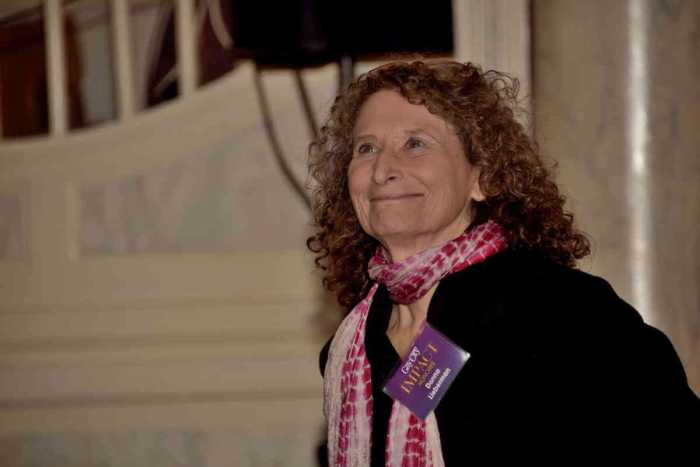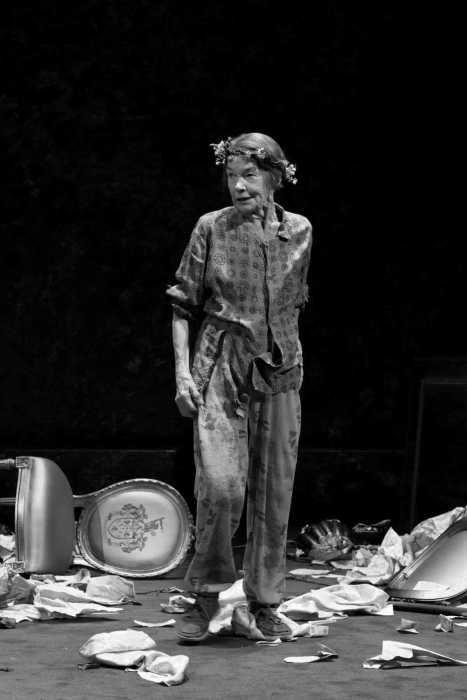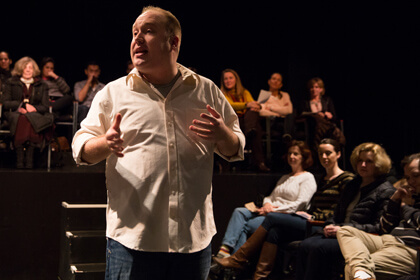Take away the “battle of the sexes plot” and you get rid of a staggering percentage of storytelling both highbrow and low. From “Lysistrata” to the current movie “What Men Want” with many, many stops along the way, the tension between men and women, the ensuing power games are an endless source of drama and, very often, comedy.
Shakespeare knew a crowd-pleasing trope when he saw it, and gender games appear in many of his plays, to a greater or lesser degree. Cleopatra, Portia, and even princess Catherine from “Henry V” are keenly aware of the power of their sex. In the more comedic vein, the iambic imbroglios of Beatrice and Benedick in “Much Ado About Nothing,” or Kate and Petruchio in “The Taming of the Shrew” still manage to have a serious subtext regarding who will end up on top. None of this is surprising, given that Shakespeare was writing to please the Virgin Queen Elizabeth: questions about the patriarchy, succession, and the validity of a woman having power and agency were constants.
In the cases of “Much Ado” and “Shrew,” the outcome is a kind of equality, even within the male-dominated society. Particularly in “Shrew,” Kate’s apparent submission, as the play is written, comes not from being “tamed” but rather having forged a truce with Petruchio. At least that’s one interpretation of a play that has been passionately argued and constantly reinterpreted for centuries against the backdrop of contemporaneous gender politics at the moment its production.
These issues have not been lost on Roundabout in mounting a stunning new production of “Kiss Me, Kate,” Cole Porter’s musical interpretation of “Shrew.” The show has always been primarily a knockabout farce with a backstage battle royale raging between the stars Fred Graham and Lilli Vanessi, divorced for a year after a tempest-tossed marriage even as they lock horns as Petruchio and Kate in a new musical based on “Shrew” onstage. At Roundabout, new material by Amanda Green deftly shifts the balance of power and tones down what might be deemed toxic today — Kate doesn’t get spanked, for instance, and any physical “violence” is over-the-top cartoonish from both characters. Ironically, it passes seemingly unnoticed that Kate calls Petruchio “bastard,” something that would have been shocking on a Broadway stage in 1948. As written in Sam and Bella Spewack’s original book, Fred and Lilli are stereotypical backstage types — another tired-and-true trope that never seems to get tired. No one seems to mind.
Apart from sexual and political controversies, one can just sit back and enjoy Porter’s magnificent score and the convoluted story, which, in addition to the offstage/ onstage contretemps includes a subplot about gangsters trying to collect on a gambling debt falsely ascribed to Fred, a romance between Bianca, a nightclub singer with a checkered romantic history, and her devoted swain, Bill, a gambling addict, and the backstory of a production trying out in Baltimore. In other words, it’s a classic musical from the Golden Age that doesn’t make a lot of sense but is one heck of a lot of fun. That’s the point.
Though the unreconstructed parts of the book may creak at times, this production helmed by Scott Ellis is pure musical comedy entertainment of the most classic style. As Petruchio says, in one of the best mixed metaphors ever, it’s written, “with my tongue in my cheek and my lips in a smile.”
The fun is, naturally, the result of inspired casting. Will Chase is Fred/ Petruchio, and he is hilarious. He’s every bit a satire on the egocentric matinee idol, and he’s not afraid to be ridiculous, which has the additional benefit of blunting what might be seen as misogynistic by a modern audience. Chase’s singing is solid, and when Fred drops the façade for the reprise of “So In Love,” there’s a vulnerability that’s quietly affecting and humanizing. Kelli O’Hara as Lilli/ Kate is simply perfect. She’s got that voice that is always thrilling and radiates star power, but she also gets to display her comic chops, which are substantial.
In the secondary roles, Corbin Bleu is outstanding as Bill. He’s played more as a good guy with an edge rather than a heel, as is often the case, but Bleu’s magnetic presence, warm voice, and exceptional dancing make the part irresistibly his own. Stephanie Styles as Lois Lane is hilarious as a quintessential chorine, another familiar backstage character, particularly in her two big numbers, “Tom, Dick, or Harry” and “Always True to You in My Fashion.” James T. Lane plays Paul with suave confidence and exuberantly leads the show-stopping “Too Darn Hot” that opens the second act, while Adrienne Walker has a rich voice and a wry presence as Hattie, the dresser to Lilli.
John Rockwell’s sets contrast more realistic backstage settings with the painted drops, very 1948, of the onstage show, and Jeff Mashie’s costumes are a masterful blend of luscious period streetwear and ironic takes on traditional Shakespeare. The new orchestrations by Larry Hochman are lush and smart. Certainly, one of the highlights of the evening is Warren Carlyle’s choreography marvelously performed by the excellent ensemble. Carlyle marries the current athleticism of Broadway with the implied and sometimes overt sexuality that reminds one of Michael Kidd’s groundbreaking modern dance and Hanya Holm, the show’s original choreographer.
With all the concern about gender politics, it might be easy to overlook how unabashedly sexual a lot of this show is in the book and Porter’s lyrics. This is decidedly a show for sophisticated adults and a production that’s not to be missed.
Maddie Corman has gone through something awful and life-changing. When her husband, noted director and theater personality Jace Alexander, was arrested and convicted on child pornography charges, her world crumbled. It’s a terrible, traumatic thing to endure and worse given that both Corman and Alexander are somewhat public figures so the events were played out in the media, as well. It’s the classic tale of how what seems to be an outwardly perfect life can be shattered by addiction.
Rather than trying to forget and move on, Corman has turned her story into a one-woman show, now at the DR2. She is an extraordinary actress and a strong writer, and her story — she hates the term “journey” — is harrowing and compelling. It’s also unresolved. She still deals with the effects of the case, even as she tries to rebuild her life.
Perhaps it’s therapeutic for her to tell her story in such a public way, but it’s weak theater. There is an “angel” who phones and texts to help her get through it. Corman says it’s someone we’d all know but refuses to name this woman. (From the self-help bromides dispensed, we can guess.) Other than an expository retelling of events and emotions, there is no apparent larger, more literate purpose to this piece. From the outset, Corman says there are limits on what she can or will reveal. That’s self-defeating from a theatrical standpoint, as it leaves the audience wondering what parts of the story are being left out. Better to leave that unsaid.
Corman is not the first woman to be victimized by addiction, and she won’t be the last. Nor, however, is this the first piece to dramatize the kind of “Eat, Pray, Love” events that upend a life. As tragic as this story is and as lovely an actress as Corman is, the piece suffers because while she brings us intimately into her life, she gives us little or nothing more than that.
KISS ME, KATE | Roundabout Theatre at Studio 54, 254 W. 54th St. | Through Jun. 30: Tue.-Sat. at 8 p.m.; Wed., Sat. at 2 p.m.; Sun. at 3 p.m. | $59-$352 at roundabouttheatre.org or 212-719-1300 | Two hrs., 35 mins., with intermission
ACCIDENTALLY BRAVE | DR2 Theatre, 105 E. 15th St. | Through Jul. 14: Mon., Wed.-Sat. at 7:30 p.m.; Wed., Sat.-Sun. at 3 p.m. | $55-$100 at ticketmaster.com or 800-745-3000 | Ninety mins., no intermission


































